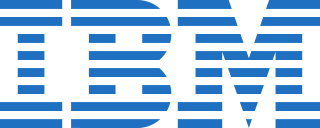
AIX is a series of proprietary Unix operating systems developed and sold by IBM for several of its computer platforms.
IBM mainframes are large computer systems produced by IBM since 1952. During the 1960s and 1970s, IBM dominated the computer market with the 7000 series and the later System/360, followed by the System/370. Current mainframe computers in IBM's line of business computers are developments of the basic design of the System/360.
PL/I is a procedural, imperative computer programming language initially developed by IBM. It is designed for scientific, engineering, business and system programming. It has been in continuous use by academic, commercial and industrial organizations since it was introduced in the 1960s.

Hercules is a computer emulator allowing software written for IBM mainframe computers and for plug compatible mainframes to run on other types of computer hardware, notably on low-cost personal computers. Development started in 1999 by Roger Bowler, a mainframe systems programmer.

Db2 is a family of data management products, including database servers, developed by IBM. It initially supported the relational model, but was extended to support object–relational features and non-relational structures like JSON and XML. The brand name was originally styled as DB/2, then DB2 until 2017 and finally changed to its present form.
In computing, Interactive System Productivity Facility (ISPF) is a software product for many historic IBM mainframe operating systems and currently the z/OS and z/VM operating systems that run on IBM mainframes. It includes a screen editor, the user interface of which was emulated by some microcomputer editors sold commercially starting in the late 1980s, including SPF/PC.

VM is a family of IBM virtual machine operating systems used on IBM mainframes System/370, System/390, zSeries, System z and compatible systems, including the Hercules emulator for personal computers.

IBM CICS is a family of mixed-language application servers that provide online transaction management and connectivity for applications on IBM mainframe systems under z/OS and z/VSE.
Adabas, a contraction of “adaptable database system," is a database package that was developed by Software AG to run on IBM mainframes. It was launched in 1971 as a non-relational database. As of 2019, Adabas is marketed for use on a wider range of platforms, including Linux, Unix, and Windows.
VisualAge is a family of computer integrated development environments from IBM, which supports multiple programming languages. VisualAge was first released in October 1993 and was discontinued April 30, 2007 and its web page removed in September 2011. VisualAge was also marketed as VisualAge Smalltalk, and in 2005, Instantiations, Inc. acquired the worldwide rights to this product. IBM has stated that XL C/C++ is the followup product to VisualAge.
QuickTransit was a cross-platform virtualization program developed by Transitive Corporation. It allowed software compiled for one specific processor and operating system combination to be executed on a different processor and/or operating system architecture without source code or binary changes.
In computing, Advanced Program to Program Communication or APPC is a protocol which computer programs can use to communicate over a network. APPC is at the application layer in the OSI model, it enables communications between programs on different computers, from portables and workstations to midrange and host computers. APPC is defined as VTAM LU 6.2
Since the rise of the personal computer in the 1980s, IBM and other vendors have created PC-based IBM-compatible mainframes which are compatible with the larger IBM mainframe computers. For a period of time PC-based mainframe-compatible systems had a lower price and did not require as much electricity or floor space. However, they sacrificed performance and were not as dependable as mainframe-class hardware. These products have been popular with mainframe developers, in education and training settings, for very small companies with non-critical processing, and in certain disaster relief roles.
The IBM Basic assembly language and successors is a series of assembly languages and assemblers made for the IBM System/360 mainframe system and its successors through the IBM Z.
The history of IBM mainframe operating systems is significant within the history of mainframe operating systems, because of IBM's long-standing position as the world's largest hardware supplier of mainframe computers. IBM mainframes run operating systems supplied by IBM and by third parties.

An object code optimizer, sometimes also known as a post pass optimizer or, for small sections of code, peephole optimizer, forms part of a software compiler. It takes the output from the source language compile step - the object code or binary file - and tries to replace identifiable sections of the code with replacement code that is more algorithmically efficient.
XL C/C++ is the name of IBM's proprietary optimizing C/C++ compilers for IBM-supported environments.
The OS/360 Object File Format is the standard object module file format for the IBM DOS/360, OS/360 and VM/370, Univac VS/9, and Fujitsu BS2000 mainframe operating systems. In the 1990s, the format was given an extension with the XSD-type record for the MVS Operating System to support longer module names in the C Programming Language. This format is still in use by the z/VSE operating system. In contrast, it has been superseded by the GOFF file format on the MVS Operating System and on the z/VM Operating System. Since the MVS and z/VM loaders will still handle this older format, some compilers have chosen to continue to produce this format instead of the newer GOFF format.





